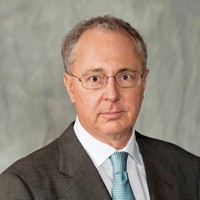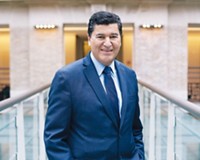Advertisement
Grab your lab coat. Let's get started
Welcome!
Welcome!
Create an account below to get 6 C&EN articles per month, receive newsletters and more - all free.
It seems this is your first time logging in online. Please enter the following information to continue.
As an ACS member you automatically get access to this site. All we need is few more details to create your reading experience.
Not you? Sign in with a different account.
Not you? Sign in with a different account.
ERROR 1
ERROR 1
ERROR 2
ERROR 2
ERROR 2
ERROR 2
ERROR 2
Password and Confirm password must match.
If you have an ACS member number, please enter it here so we can link this account to your membership. (optional)
ERROR 2
ACS values your privacy. By submitting your information, you are gaining access to C&EN and subscribing to our weekly newsletter. We use the information you provide to make your reading experience better, and we will never sell your data to third party members.
Business
Scripps Changes Leadership
Biomedical Research: Richard Lerner will step down as president to be succeeded by Berkeley chemist Michael Marletta
by Jyllian N. Kemsley
February 28, 2011
| A version of this story appeared in
Volume 89, Issue 9
Scripps Research Institute announced a major change of leadership on Feb. 20. Longtime president Richard A. Lerner will step down on Jan. 1, 2012, to be succeeded by Michael A. Marletta, a chemistry professor at the University of California, Berkeley.
Lerner, 72, has led Scripps since 1987 and maintained an active research program studying catalytic antibodies and building combinatorial antibody libraries. But "the burdens of being president take time away from being in the lab," Lerner says, and he is stepping down to refocus his attention on his research. "I know it's trite, but that's the truth," he says.
Lerner joined what was then known as the Scripps Clinic and Research Foundation in 1970. During his tenure as president, Scripps built a second campus, in Jupiter, Fla., to complement its original site in La Jolla, Calif. It also inked a five-year, $100 million deal with Pfizer Inc., to jointly study and evaluate therapeutic approaches for diseases such as cancer, diabetes, and mental illnesses. And last month, Scripps and Vanderbilt University announced a partnership focusing on personalized medicine, metabolomics, and drug discovery.
The 60-year-old Marletta will join Scripps as president-elect on July 1. He will move his lab to Scripps' La Jolla site, where he plans to continue his research into the biological and catalytic properties of redox enzymes. "I think it's important for the faculty at Scripps to know that you're in the trenches with them and still understand the pressures of doing science in today's world," Marletta says.
Marletta received his Ph.D. in chemistry from the University of California, San Francisco, in 1978 and held faculty positions at the Massachusetts Institute of Technology and the University of Michigan before moving to Berkeley in 2001. He received a MacArthur Foundation Fellowship in 1995, was a Howard Hughes Medical Institute investigator from 1997 to 2001, and was elected to the National Academy of Sciences in 2006.
As the next president of Scripps, "One challenge will be to continue to have Scripps prosper as economic times shift," Marletta says. Nevertheless, "Scripps has been a national and international force for biomedical research, and I will continue and extend that," he says.
To replace Lerner, the Scripps Board of Trustees was looking for "a top-notch scientist" who could not only lead Scripps' researchers but also raise funds for the institute, says board chairman Richard A. Gephardt, a former democratic leader of the House of Representatives who served in Missouri's congressional delegation from 1977 to 2005.






Join the conversation
Contact the reporter
Submit a Letter to the Editor for publication
Engage with us on Twitter